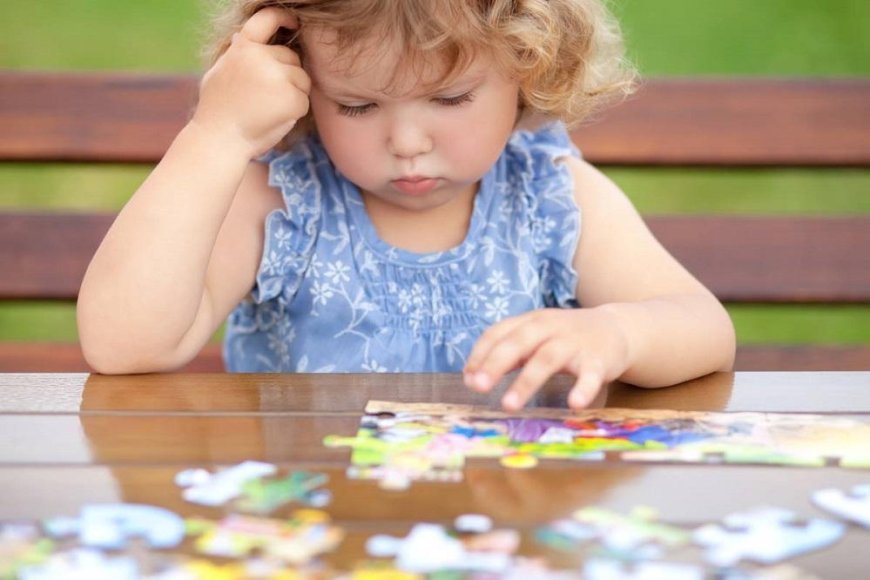Teaching children problem-solving skills
Teaching children to cope with challenges and problems is very important. Learn a few ways to help them become independent. Children

Teaching children to cope with challenges and problems is very important. Learn a few ways to help them become independent.
Children must learn to solve problems on their own. In this article, we will discuss three ways in which teaching children the skills of problem-solving, social networking and self-reliance may be.
How to talk about difficult matters with young children?
Teaching children values ‹‹and reacting to situations can teach them to behave and adapt in life. For example, disagreements and arguments are a normal part of life.
Sometimes, however, children do not know how to behave in such a situation and how to react to it. Teaching them how to solve problems will prepare them for the future and for conflict resolution in adulthood.
Teaching children problem-solving skills
Many children have difficulty interacting with others: adults and even their peers. In addition, such problems can generate anxiety, aggression, and even outbursts of rage and the like. It takes time and emotional maturity to fully develop children's problem-solving and networking skills and friendships.
Therefore, parents are obliged to teach their children at home social skills and appropriate reactions in difficult situations. This will help them learn to communicate, negotiate, and resolve conflicts with others. This can be done by teaching them the values ‹‹and principles necessary to live in harmony with others.
Teaching children to trust and show empathy
One of the best and key methods and ways to help children resolve conflicts is to teach them to trust and empathize. This is crucial for the development of their personality and character.
Therefore, it is important that parents can meet three conditions:
- Constant attention and devoting time to educating children.
- Unconditional love and support no matter what the situation.
- Create opportunities to develop your child's emotional intelligence - let them play with their peers.
In some ways, it can strengthen family ties and help the child to resolve conflicts without resorting to violence.
Must Read: How can your child be influenced if he or she does not do well at school?
Thanks to empathy and trust, children can learn:
- Recognize the feelings and emotions and points of view of other people.
- Identify the similarities and differences between the characters of other people.
- Using soft skills, sensitivity and emotional intelligence.
- Learning the ability to constructively solve problems through negotiation, mediation, discussions and the like.
According to many psychologists, emotional intelligence is a very important competence. It is about understanding the ability to recognize your own and other people's emotional states, as well as the ability to use your own emotions and deal with other people's emotional states.
Teaching children how to establish healthy relationships with other people
Between the ages of 6 and 12, children broaden their knowledge of social principles and interpersonal relations. Early childhood is the best time to teach them to share, collaborate and deal with rejection and failure.
Children can learn to establish healthy relationships by, for example:
- Ability to react or not to intolerance and mockery, insults.
- Finding out about different ways to deal with anger and negative emotions on your own.
- Finding solutions and creating new proposals for coping with different situations.
- Knowing that not all conflicts are negative can do a lot of good, constructive criticism.
- In this way, children can develop respectful relationships without avoiding social interaction with others.
Practice role-playing together
Practicing role-playing is another way of teaching your children the ability to solve problems and learn from other people's perspectives. This can be done by creating dialogues and acting in conflict situations.
This technique teaches by example and practice, so it is very attractive to young children. You can use the puppet theater, create various scenarios and perform small theater plays at home.
To do this, parents can help their child create a variety of stories with characters involved in social conflicts that the children may encounter in their lives. They can also give them orders on how to solve them. Later, parents and children can play different roles, representing what happened and how it was resolved. Then you can discuss everything that happened.
Problem solving and self-reliance
Give the child time to try to solve a given problem on his own - it will help him to believe in his abilities and find the strength to overcome adversities. This feature will be extremely useful in the future: at school, at summer camps or in a peer group. Then, without access to parents' help, the child will not feel lost.
Learning to be patient is also important. It is worth teaching a child to wait a while for various things in life. Of course, adjust the waiting time to the child's age. Not everything happens at the request of the child and not everyone will meet their expectations.
In short, the family plays a big role in how children express their feelings and deal with conflict situations. In a way, teaching them how to explore how they feel, how they experience their emotions, perceptions, and values ‹‹can help children better understand themselves and the world.
Remember that fun and games can also become great tools for teaching your children problem-solving skills in the future.
